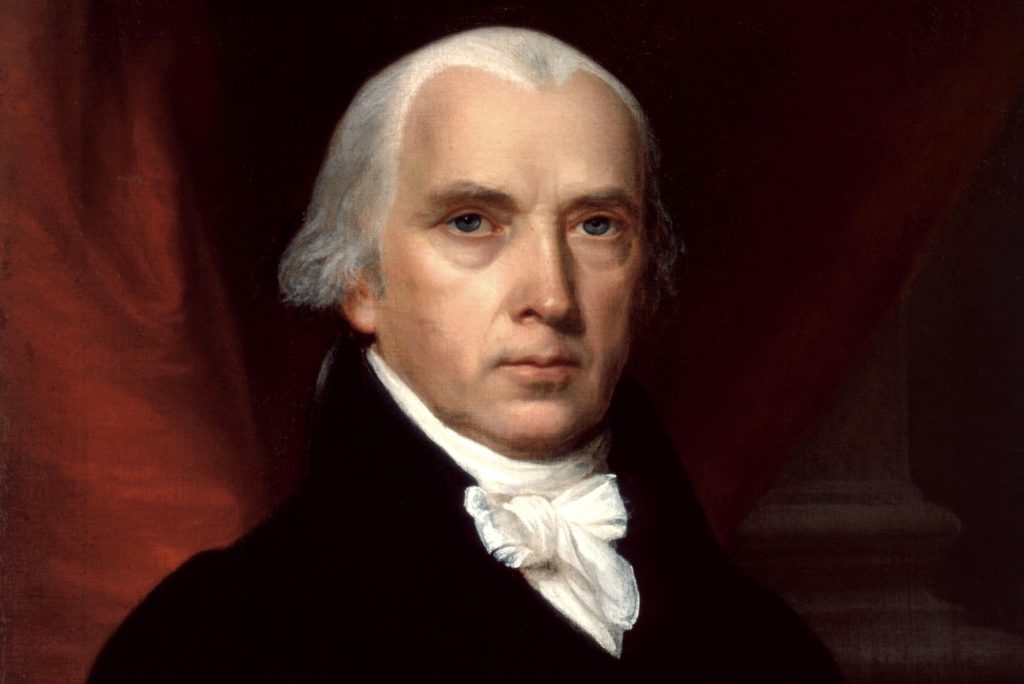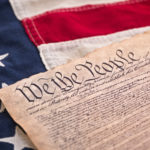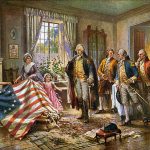The foundation of our empire was not laid in the gloomy age of ignorance and superstition but at an epoch when the rights of mankind were better understood and more clearly defined than at any former period.
—George Washington (1783)
When I learned that Steven Smith agreed to review my book, Religious Liberty and the American Founding, I was instantly curious. Smith and I have fundamentally different understandings of the Founders’ constitutionalism. Along with Lincoln, I see the Constitution as an imperfect attempt to realize the Declaration of Independence’s natural rights and natural law principles. Smith, following in the footsteps of thinkers such as John C. Calhoun and Woodrow Wilson, rejects the idea of natural rights as ahistorical and dismisses the idea that sound constitutionalism can be grounded in natural law principles. Given his categorical rejection of natural rights and natural law, I knew Smith would dislike my book, but I wondered how he would critique it.
His review does not disappoint. He thinks my book is deeply misguided. Natural rights, he says, are like astrology. Such concepts might have exerted a powerful influence over law and culture in the past, but . . . well, the past was full of premodern thinking. The Founders might have believed that natural rights nonsense, but we now know it is all a fairy tale.
Start your day with Public Discourse
Sign up and get our daily essays sent straight to your inbox.Smith thinks natural rights are fictions because no person lived in a real state of nature or voiced consent to governing authorities. But the Founders’ natural rights constitutionalism, and natural rights philosophy more generally, in no way depends on their explanation of the actual historical creation or development of governments. Natural rights theory is not history; it’s a theory of justice. It is as if Smith contends that justice does not exist because there has never been a perfectly just political order. He makes an intellectual category mistake.
The Founders’ natural rights constitutionalism, and natural rights philosophy more generally, in no way depends on their explanation of the actual historical creation or development of governments.
Natural Equality
The foundation of the Founders’ natural rights philosophy is the truth that “all men are created equal.” As I explain in my book, by “equality” the Founders meant that no individual was born with natural political authority over other men—in Jefferson’s phrase, “that the mass of mankind has not been born with saddles on their backs, nor a favored few booted and spurred, ready to ride them legitimately, by the grace of god.” Jefferson was a hypocrite for owning slaves, but his statement is either true or false—either all individuals are born equal or, alternatively, some individuals are born to rule and others to be ruled. Smith does not say which of these alternatives he believes to be true; rather, he suggests such talk about natural equality is meaningless.
The Founders certainly did not think so. Neither did Lincoln. (An implication of Smith’s position is that the Gettysburg Address is meaningless too, but that is a different story for a different time.) I attempt to articulate the Founders’ philosophy, to set forth why they held religious liberty to be an inalienable natural right, and then to explain how their natural rights understanding would adjudicate First Amendment church–state cases and controversies, in part, because a robust originalism demands it. This is how I state the matter in my introduction:
This book also aims to contribute to the broader scholarly discussion of whether we ought to attempt to return to the Founders’ understanding for our constitutional practice. It does so from a perspective somewhat different than most originalists’. At the core of the originalist method is the proposition that a legal text’s original meaning ought to govern us. That might be true in a narrow and immediate sense, especially as it applies to the role of judges in a constitutional republic. But that a text’s original meaning is thus and such is not a compelling reason to follow it in a more comprehensive sense. Unjust and ill-considered laws have original meanings too, and one should not be eager to give them effect even if obligated to do so. Ultimately, the most persuasive reason to adopt the Constitution’s original meaning is because that meaning helps to make the Constitution a good constitution. I do not think it sufficient, therefore, only to know the Constitution’s original meaning. We necessarily must make judgments about its merits. To make considered judgments, we need to understand the mind of the lawgiver and how desirable it would be to follow it. I attempt, therefore, to present the Founders’ understanding of religious liberty, to explore the political, philosophical, and theological reasons that guided it, and to explain how the Founders’ approach would resolve leading church–state issues.
Smith dismisses the project out of hand, because he thinks the Founders’ political philosophy is nonsense and the Constitution is merely a bundle of unprincipled compromises.
Thinking Through the Founders’ Philosophy and Disagreements
Regarding his specific criticisms: Smith does not acknowledge the full evidence I present, which I suppose is inevitable in any review. In the book’s third chapter, I explain Jefferson, Madison, and Isaac Backus’s philosophy and theology of religious liberty. In anticipation of critics like Smith, I wrote the chapter to show that the Founders offered arguments from both reason and faith for their natural rights conclusions. Smith is dismissive, contending that Jefferson’s claim that individuals do not fully control their beliefs is not persuasive. I actually agree with Smith’s point about Jefferson; I myself explain the deficiencies in Jefferson’s argument in my previous book God and the Founders (pp. 92–97). But I would have liked to have seen Smith address Madison’s natural theology and Backus’s Christian theology of religious freedom. He makes no reference to these arguments, which are more thoughtful and more interesting than Jefferson’s.
It is too bad that Smith does not address Madison’s defense of religious liberty in particular, as Madison’s account of the nature of true worship (that it “can be directed only by reason and conviction”) tracks the philosophical anthropology Smith himself explores in his book Fiction, Lies, and the Authority of Law (see pp. 214–17). I presume Smith would reject Madison’s argument as it derives the inalienability of the natural right to religious free exercise from the natural law, but I would have liked to see Smith engage it.
It is too bad that Smith does not address Madison’s defense of religious liberty in particular, as Madison’s account of the nature of true worship (that it “can be directed only by reason and conviction”) tracks the philosophical anthropology Smith himself explores in his book.
Regarding the proper meaning of the Free Exercise Clause, Smith and I read the available historical evidence differently. Smith follows Michael McConnell and contends that the First Amendment provides religious believers a right to exemptions from otherwise valid but religiously burdensome laws. I disagree and present the Founding-era evidence against exemptions. Among conservative readers, this undoubtedly will be the least admired part of my book. If I am right, Justices Alito, Thomas, and Gorsuch were wrong in Fulton v. City of Philadelphia (2021) to call for the reversal of Employment Division v. Smith (1990).
The stakes are high and the arguments are complex. Rather than respond to the minor points Smith disputes, I would simply encourage the interested reader to read all my arguments and judge for him- or herself. The evidence I present includes a review of the First Amendment’s drafting record, an examination of the antecedent philosophical background that informs the First Amendment’s language, and consideration of the actual text adopted. On this last point, let me note that the First Amendment states, “Congress shall make no law . . . prohibiting the free exercise [of religion].” It does not say, “no law . . . except if the state is pursuing a compelling state interest using the least restrictive means.” Let me also note that I offer a “construction” of the text, because I believe the undetermined nature of the text’s original meaning make straightforward “interpretation” impossible. One other relatively minor quibble. I think Smith somewhat distorts one of my arguments. He says any natural rights analysis is not helpful because, as I show, leading Founders, in his words, “differed radically in their understandings of what religious freedom entailed.” What I actually say is, “while the Founders agreed about the core meaning of religious liberty as an inalienable right, they disagreed about its scope” (p. 18). “Agreement on fundamentals,” I explain, “did not yield agreement on all matters of public policy” (p. 89). What Aquinas says about the natural law is also true about natural rights—the farther away from first principles, the more doubtful the resulting precepts. It’s not always easy, in other words, to determine which specific policies follow from natural rights principles. I try to make clear that constitutional interpreters can’t just point to specific actions of some Founders and claim that those actions represent the Founding generation’s original understanding. The Founders’ disagreements suggest not that we should dismiss them, but that we have to think through their arguments and principles of justice to understand which actions, if any, we ought to find authoritative.
Smith, however, doesn’t try to think through the Founders’ principles, because he does not think principles ought to guide jurisprudence. He finds it incomprehensible that I conclude the Founders misapplied their own principles when it comes to legislative prayer. I believe Smith has in mind the First Congress’s adoption of a legislative chaplaincy, which I say is inconsistent with the natural rights approach. Smith here adopts the standard originalist presumption that whatever the Founders did (especially the actions of the First Congress) is tantamount to the Constitution’s original public meaning. But is it actually hard to believe that the Founders’ practices did not always cohere with their natural rights principles? Let’s not forget that Roger Taney in Dred Scott also said the Founders’ words ought to be interpreted in light of their actions. This presumption of originalism, it turns out, is not always true, and it is clearly not always worth maintaining. I might also note that Madison himself thought legislative chaplains were unconstitutional.
The Founders’ disagreements suggest not that we should dismiss them, but that we have to think through their arguments and principles of justice to understand which actions, if any, we ought to find authoritative.
I begin Religious Liberty and the American Founding with George Washington’s letter to the Hebrew Congregation at Newport, Rhode Island. “It is now no more that toleration is spoken of,” the president writes, “as if it was by the indulgence of one class of people, that another enjoyed the exercise of their inherent natural rights.” According to Steven Smith, it’s meaningless to speak of our inherent natural rights. In truth, most of the academic and intellectual class agrees with him, having long ago abandoned natural rights philosophy. Perhaps we shouldn’t find it surprising, then, that the religiously devout now find themselves merely tolerated, and that they regularly must plead for the indulgence of being exempt from laws they find burdensome.
A return to the Founders’ natural rights constitutionalism may not offer the best alternative to protect religious liberty today. But we cannot even entertain the possibility that it might if we do not understand the principles of justice or the practical meaning of the philosophy that originally animated the Constitution. Not everyone thinks it’s worth the effort to try to understand the Founders’ constitutionalism. My book is for those who do. It is written for citizens and scholars who are open to engaging with—and perhaps learning from—the Founders and their defense of our natural right to religious liberty.













